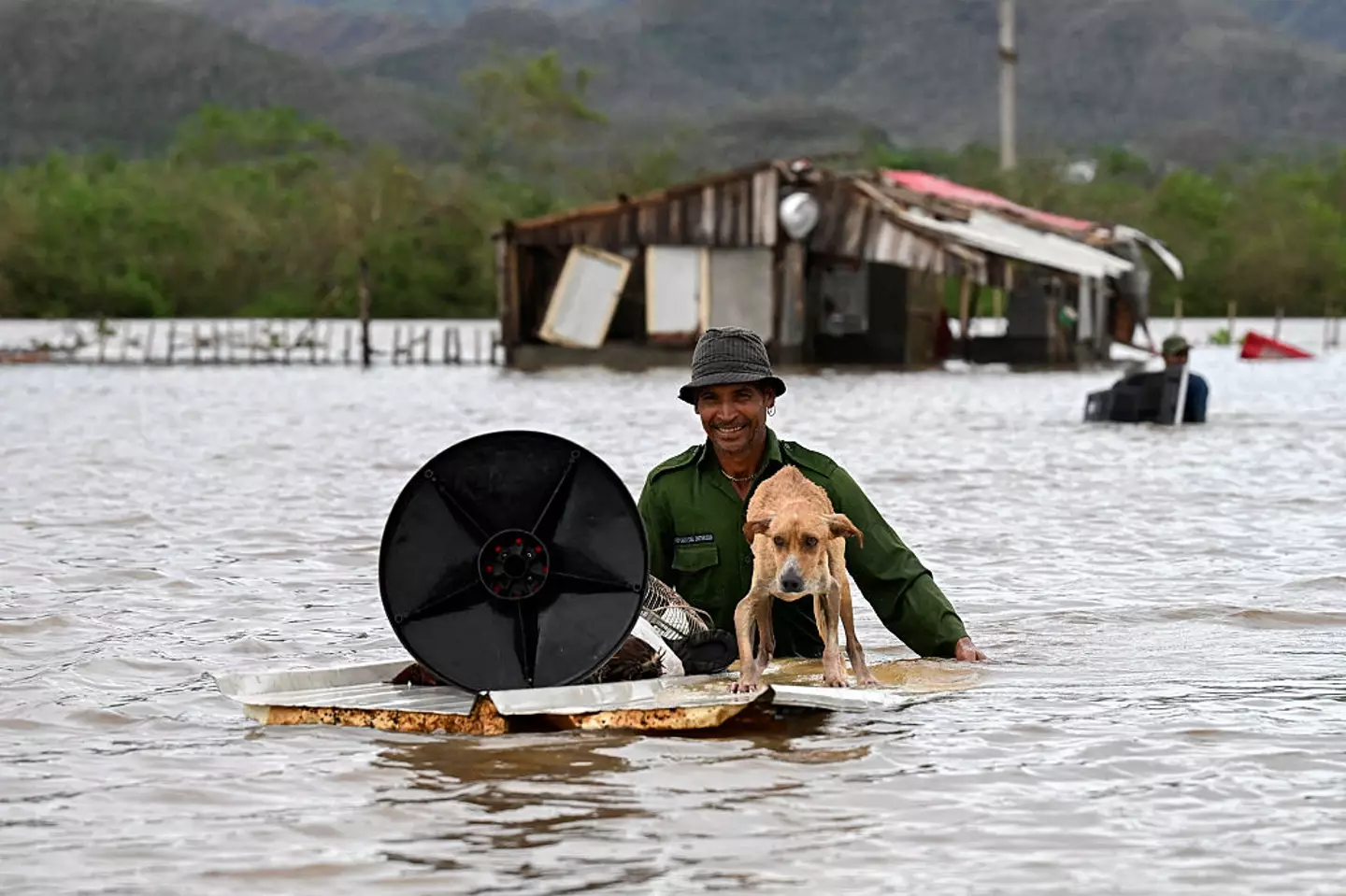
Hurricane Melissa looks destined to enter the history books as one of the biggest storms since records began, and after being upgraded to a deadly Category 5 hurricane, she’s wreaking across the likes of Bermuda, Cuba, and Jamaica.
The death toll currently stands at 29, with Hurricane Melissa continuing to tear through the southern part of the Bahamas after making landfall near Jamaica's New Hope on October 28.
Devastating Jamaica on a level that has never been seen before, United Nations resident coordinator for the island nation, Dennis Zulu, said nearly a third of Jamaica's one million residents have been affected by the third Category 5 hurricane of the 2025 Atlantic hurricane season.
With winds reaching a cataclysmic 295 km/h, it's unsurprising that Hurricane Melissa is said to have already caused $8 billion worth of damage. Surpassing a record previously set by 1988's Hurricane Gilbert as a low-end Category 4, it seems authorities were at least slightly more prepared this time around.
Advert

According to CBS, investors will soon be forced to pay out on a 'hidden' category bond that will hopefully help Jamaica recoup some of its financial losses. The outlet explains how Jamaica has been building layers of financial protection for years, and in 2024, it issued a $150 million cat bond that would be triggered on the basis of a certain strength of hurricane hitting certain areas.
Funded by Jamaica itself, and assisted mainly by investment firms in North America and Europe, the 2024 cat bond matures in 2027 and covers four hurricane seasons.
This latest bond follows an initial round that was funded by donors and provided to the tune of $185 million in 2021. CBS explains that if the payout isn't triggered, the $150 million bond will be paid back to investors (with interest) before December 29, 2027. Given the risk of hurricanes hitting the region, this came with an attractive interest rate of around 7% per annum.
Interestingly, the bond is paid out based on the severity of a storm instead of the damage caused or the cost of rebuilding.
Discussing the cat bond, Florian Steiger, CEO of Swiss firm Icosa Investments, said: "They are linked to the central pressure of the hurricane when it makes landfall."
A third party will still need to verify the parameters have been met, but apparently, there's no doubt that the threshold has been crossed. Steiger added: "Based on everything we've seen, the payouts are going to happen.”
Instead of waiting around in the hurricane-ravaged wreckage, these much-needed funds could reach Jamaica in a matter of days. The cat bond isn't the only sign of relief, with Jamaica having insurance policies that come from a pool covering extreme rainfall and tropical storms throughout the Caribbean.
Also pulling credit from the World Bank and the Inter-American Development Bank, Conor Meenan, a risk financing adviser at the Centre for Disaster Protection, continued: "Jamaica's strategy is, in my perspective, one of the most comprehensive of any country globally at the minute."
Although Jamaica's Finance Ministry maintains it has a pot of around $820 million to assist with the immediate aftermath of a disaster, it's unlikely to touch the sides in terms of the billions in damages that Hurricane Melissa is expected to have caused when she finally moves on.
Still, the likes of the cat bond are important in helping restore immediate needs, including essential services, health care facilities, and roads.